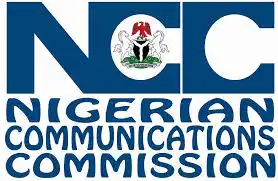The Nigerian Communications Commission (NCC) has kicked off activities for the third edition of its Talent Hunt Research through Hackathon as part of efforts to give expression to its Strategic Vision Plan 2023-2025, which is to encourage the development of new technologies and indigenous content through cutting-edge research.
A statement by Director, Public Affairs of NCC Reuben Muoka disclosed that the goal of the initiative was to stimulate sustainable economic growth and development in Nigeria.
The statement noted that the Commission has invited Tech Hubs, and Innovation-Driven Enterprises (IDEs) in Nigeria to enrol their start-ups and their solutions in the Talent Hunt Research.
“The Hackathon focuses on Blockchain-enabled Data Protection Solutions for Enhancing Regulatory Compliance; Assistive Technology Solutions for the Elderly and People with Disabilities; and Technology Solutions for Renewable Energy in Rural Areas.
“The NCC Talent Hunt Research Through Hackathon leverages Emerging Digital Technologies to facilitate the development of home-grown innovative solutions and local content development in the telecommunications sector while fostering economic growth and social advancement in Nigeria.
“The competition enables the translation of novel ideas into the development of hardware/software solutions that address industry and societal challenges. The best three solutions, one from each of the three areas listed above will receive grants of N10 million each for the development of the solutions.
“The Commission has set out eligibility criteria for those seeking to participate in the competition, which include that the Enterprise must provide a certificate of registration with the Corporate Affairs Commission (CAC), the Enterprise must not have previously received support from the Commission, the project should have clear relevance to one of the three thematic areas above, it must provide a clear problem statement, proposed solution, and roadmap to deployment.
“Other requirements include a proof of concept (which may also include technical feasibility of the idea with diagram, algorithm, existing models, or case studies; the solution must be novel with the applicant making a declarative statement on ownership of the intellectual property, the solution including prototype development shall be concluded within 6 months of receipt of the Grant and must propose a detailed commercialization plan of the prototype,” the statement reads.




